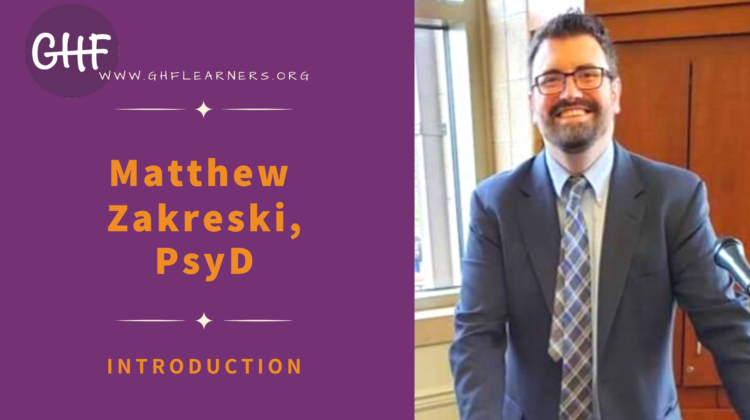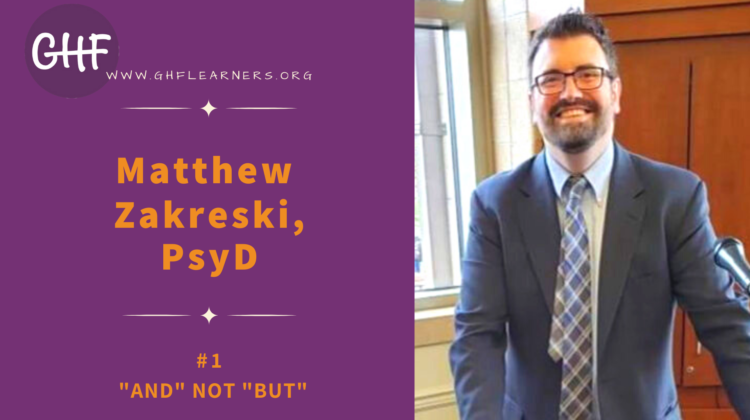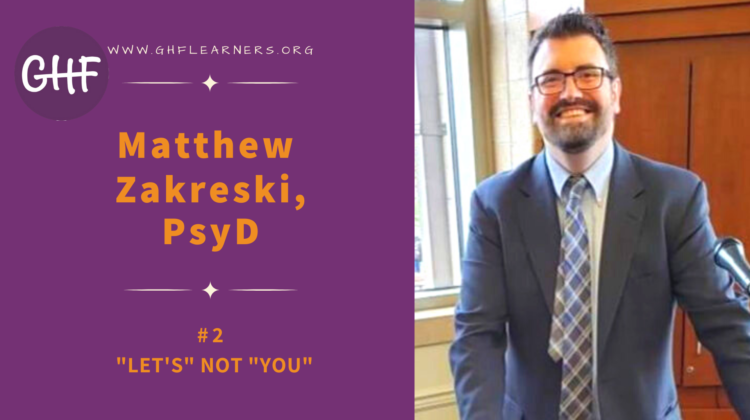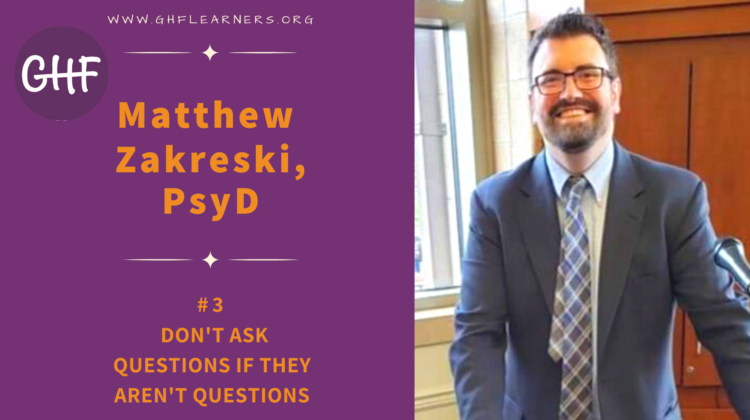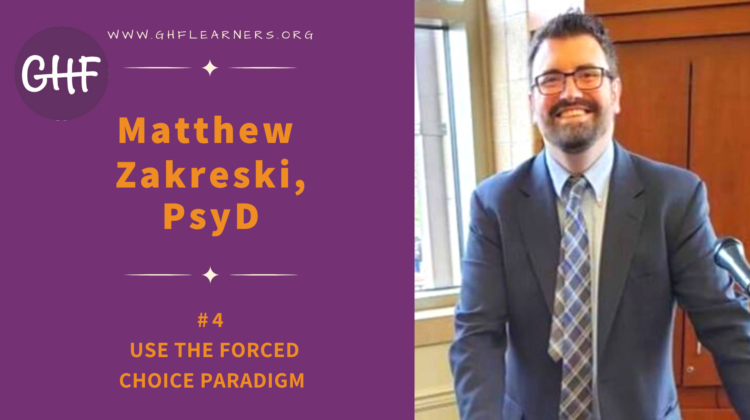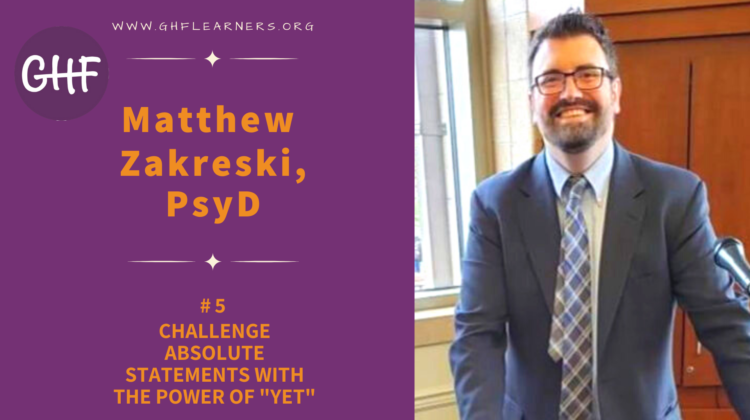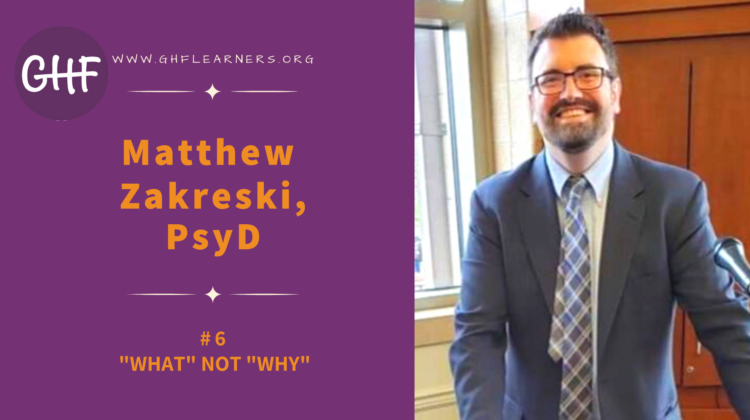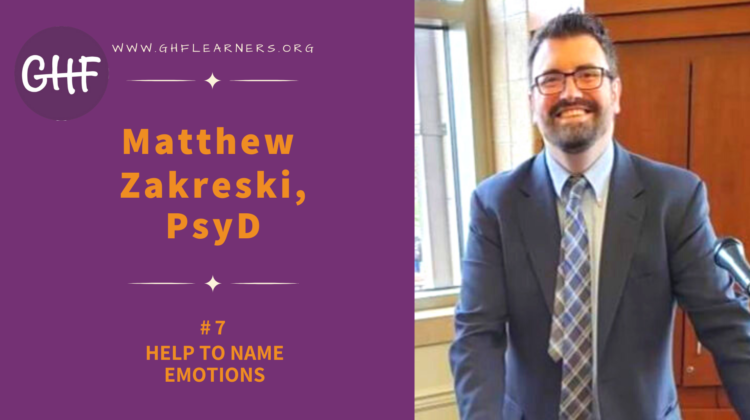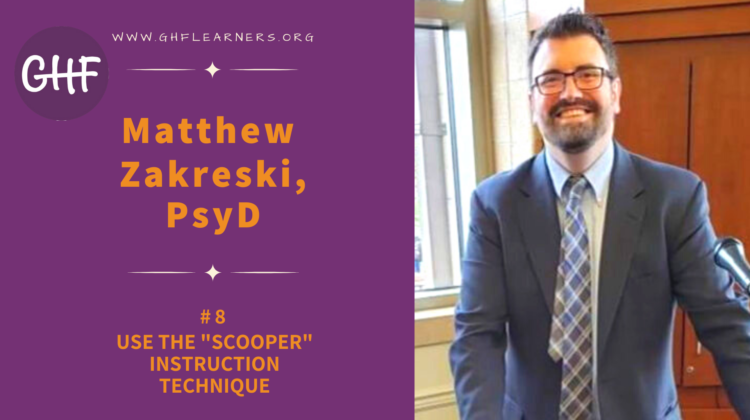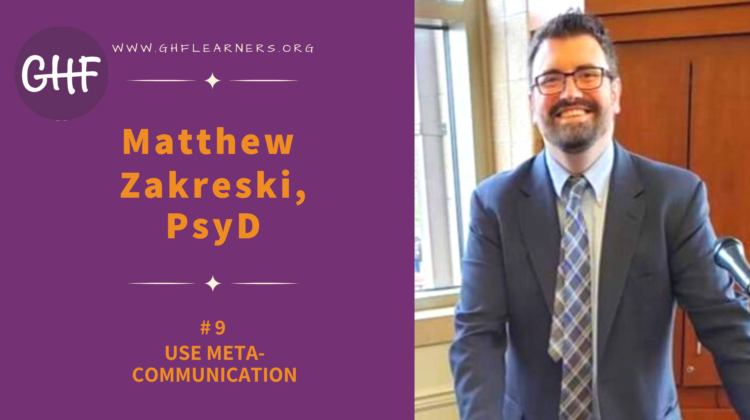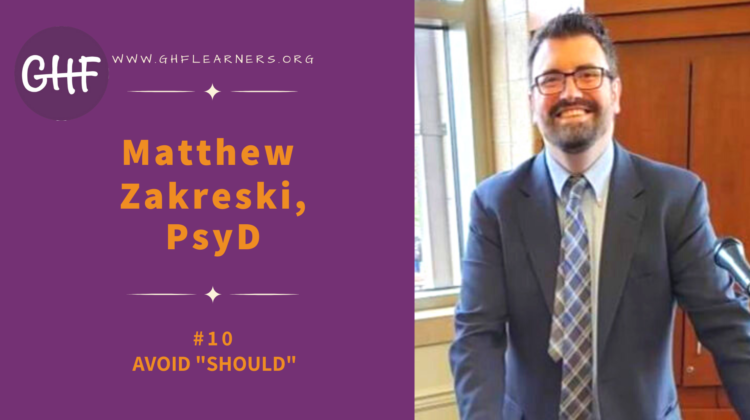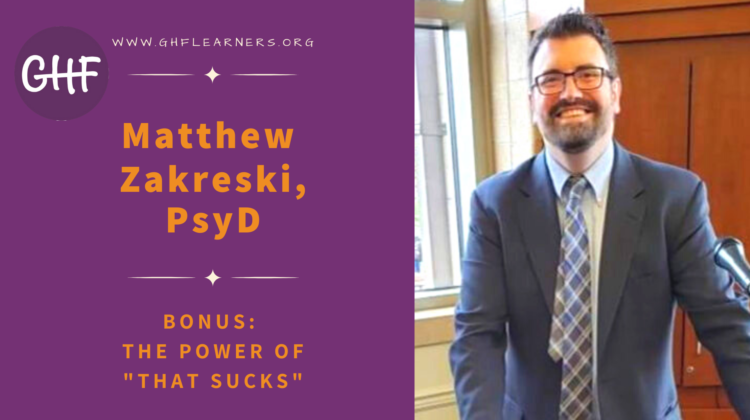Ten ways you can use psychologically minded language with your gifted/2e student (at home or at homeschool)
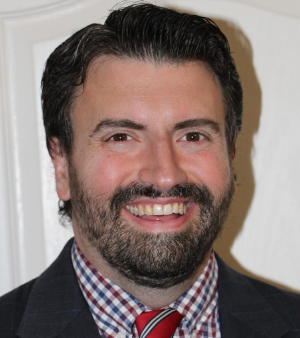
Dr. Matt Zakreski
In this series, Dr. Matt offers “Ten ways you can use psychologically minded language with your gifted/2e student (at home or at homeschool)” in an article that has been broken up into small pieces that you can enjoy at your leisure (or sneak it into your busy day). Each article provides helpful advice to parents of gifted kids along with a video where Dr. Matt discusses the topic.
Please comment on the posts and be part of the GHF Dialogue. We hope that you enjoy these.
Ten ways you can use psychologically minded language with your gifted/2e student (at home or at homeschool)
#1 Ten ways: “And” not “But”
#2 Ten ways: “Let’s” not “You”
#3 Ten ways: Don’t ask questions if they aren’t questions
#4 Ten ways: Use the forced choice paradigm
#5 Ten ways: Challenge absolute statements with the power of “yet”
#6 Ten ways: What not Why
#7 Ten ways: Help to name emotions
#8 Ten ways: Use the SCOOPER Instruction Technique
#9 Ten ways: Use meta-communication.
#10 Ten ways: Avoid “Should”
#11 Ten ways: (Bonus!) The power of “that sucks.”
Nothing found.
Dr. Matt Zakreski
Psychologist, Gifted Expert, International Speaker
Matthew Zakreski, PsyD is a high energy, creative clinician who utilizes an eclectic approach to meet the specific needs of his clients. He specializes in working with children and adolescents, as well as their families, in providing therapy and conducting psychological evaluations. Dr. Matt is proud to serve as a consultant to schools, a professor at the university level, and a researcher and author on his specialty, Giftedness.
Dr. Matt thrives in supporting young people in understanding, developing, and celebrating their unique brains and ways of operating in their world. He is best known for his work with Gifted individuals and in being an advocate for implementing high-level supports and understanding of Gifted needs. He is a board member of the Pennsylvania Association for Gifted Education and active in multiple Gifted organizations around the country.
